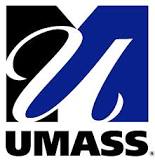Effect of CBT Microinterventions on Mechanisms of Behavior Change Among Adults With AUD
| Status: | Recruiting |
|---|---|
| Healthy: | No |
| Age Range: | 18 - Any |
| Updated: | 9/16/2018 |
| Start Date: | August 8, 2018 |
| End Date: | August 2019 |
| Contact: | Emily Starratt |
| Email: | emily.starratt@umassmed.edu |
| Phone: | 508-856-8745 |
Effect of CBT Microinterventions on Mechanisms of Behavior Change Among Adults With AUD: Using Eye Tracking to Measure Pre-Post Cognitive Control, Stimulus Salience, and Craving
This proposed R21, Effect of CBT Microinterventions on Mechanisms of Behavior Change among
Adults with AUD: Using Eye Tracking to Measure Pre-Post Cognitive Control, uses a
translational team science approach to isolate and examine the effect of three different
Cognitive Behavioral Therapy (CBT) interventions (functional analysis (FA), cognitive
restructuring for alcohol related thoughts (CR), and dealing with cravings (DC)) on specific
hypothesized mechanisms (cognitive control, stimulus salience, or craving/arousal,
respectively).
Adults with AUD: Using Eye Tracking to Measure Pre-Post Cognitive Control, uses a
translational team science approach to isolate and examine the effect of three different
Cognitive Behavioral Therapy (CBT) interventions (functional analysis (FA), cognitive
restructuring for alcohol related thoughts (CR), and dealing with cravings (DC)) on specific
hypothesized mechanisms (cognitive control, stimulus salience, or craving/arousal,
respectively).
This R21 uses an innovative paradigm pairing a "microintervention" design with eye tracking
laboratory tasks used successfully to show deficits of cognitive control over cocaine and
nicotine cues, and to objectively measure stimulus salience and craving/arousal in response
to alcohol cues. To achieve the study's two specific aims, participants with AUD will be
assessed with antisaccade (to measure cognitive control) and attentional bias (to measure
stimulus salience and pupil diameter) eye tracking tasks.
Specific Aim 1. To isolate and preliminarily assess the impact of specific CBT
microinterventions on potentially malleable hypothesized mechanisms of change in drinking
using a novel laboratory paradigm and conducted by a translational science team.
Specific Aim 2. To test specificity of CBT interventions' effect on particular Mechanisms of
Behavioral Change, the investigators will test each microintervention's effects on all three
purported mechanisms (as stated in "Brief Summary".)
laboratory tasks used successfully to show deficits of cognitive control over cocaine and
nicotine cues, and to objectively measure stimulus salience and craving/arousal in response
to alcohol cues. To achieve the study's two specific aims, participants with AUD will be
assessed with antisaccade (to measure cognitive control) and attentional bias (to measure
stimulus salience and pupil diameter) eye tracking tasks.
Specific Aim 1. To isolate and preliminarily assess the impact of specific CBT
microinterventions on potentially malleable hypothesized mechanisms of change in drinking
using a novel laboratory paradigm and conducted by a translational science team.
Specific Aim 2. To test specificity of CBT interventions' effect on particular Mechanisms of
Behavioral Change, the investigators will test each microintervention's effects on all three
purported mechanisms (as stated in "Brief Summary".)
Inclusion Criteria:
- Age 18 or older
- Current Alcohol Use Disorder (AUD) Diagnosis
- Drank Alcohol within 60 days prior to telephone screen
- Able to read and understand English at the 7th grade education level
Exclusion Criteria:
- Participant diagnosed with Schizophrenia or Schizoaffective Disorder
- Participant has a head injury with symptoms in the last 30 days
- Current inpatient or outpatient treatment for AUD or Drug use Disorder (DUD)
We found this trial at
1
site
55 N Lake Ave
Worcester, Massachusetts 01655
Worcester, Massachusetts 01655
(508) 856-8989

Principal Investigator: Elizabeth Epstein
Phone: 508-856-8745
Univ of Massachusetts Med School As the commonwealth's only public medical school, we take seriously...
Click here to add this to my saved trials